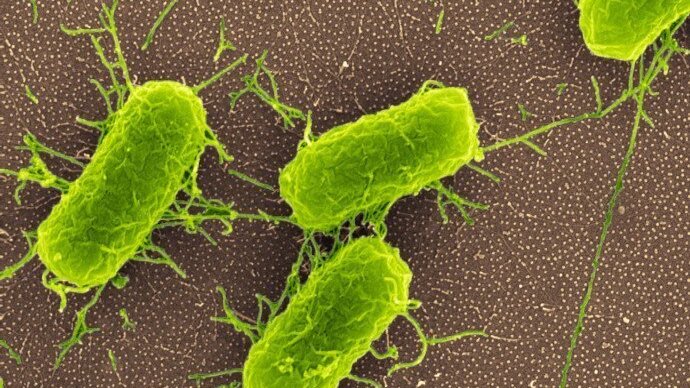The use of biomaterial implants to treat injured and/or diseased bone is frequently associated with biomaterials associated infections (BAIs). So far, such infections are treated with implant replacement by multi-stage surgery and long-time antibiotics, which gets ever more difficult because of increasing antibiotic resistance. Due to the growing number of patients, especially those with osteosynthesis implants and prosthetic joints, there is an urgent need to address this challenge. A steadily growing number of elderly immunocompromised patients adds to the challenge and calls for new and coordinated efforts and responses in research and training.
The research idea of the RTG Materials-Microbes-Microenvironments (M-M-M) is to address these challenges by excellence in scientific research in developing a new, tailored antimicrobial materials platform with the prospect for future clinical use. This will be accomplished by six interdisciplinary PhD tandem projects, with two doctoral researchers (DRs) working on complementary materials science and medical science aspects of these questions in each project, with one materials scientist and one medical professional working as team supervisors.
The RTG comprises the following unique points: M-M-M develops an innovative antimicrobial materials platform consisting of different materials systems that integrate: i) tailor-made specific micro-environments and promotion of growth of specific body cells and tissues (e.g., osteoblast cells), ii) non-toxic, physical antimicrobial action principles (e.g., switchable materials surfaces or "sharp" materials edges) and, where possible, iii) the principle of combined action. This materials platform is based on different nanostructured materials (metals, (bio-)polymers, graphene, and ceramics/glass). This will be complemented by advanced materials science and biological microscopy methods, characteristic for the “City of Light” Jena that will help to elucidate the complex multifactorial interaction mechanisms of biomaterials, body cells and microbes. The topic antimicrobial biomaterials that promote body cell growth is particularly suited for an interdisciplinary RTG.
The qualification programme of the RTG aims to train DRs to become excellent and transdisciplinary educated experts in antimicrobial biomaterials, integrated in international networks. The curriculum of this RTG is specially designed to address the needs of DRs from different backgrounds working in the interdisciplinary field of antimicrobial materials. It consists of six elements: Interdisciplinary mentoring, complementary basic training, peer teaching and coaching, advanced scientific training, transfer of research results into applications and soft skills training. In addition, the RTG’s research and teaching constitute a common communication platform between materials science and medical science that advances the understanding of the respective other discipline and thus develops creative solutions.

